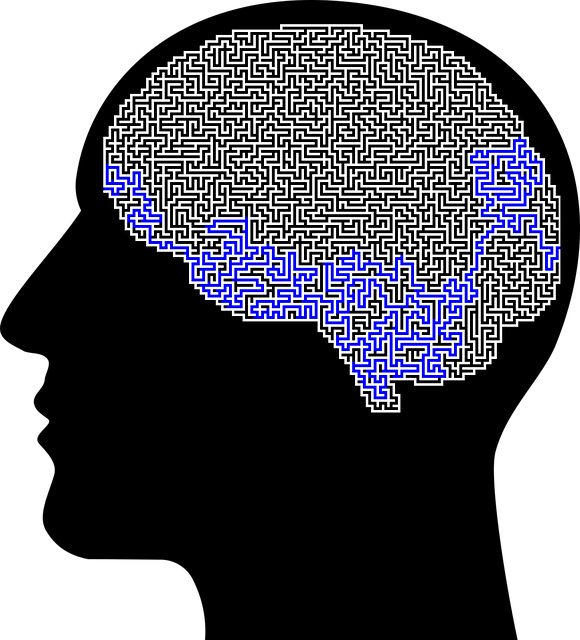Mental health education programs in Louisville are transforming community attitudes through stigma reduction, early intervention for depression and anxiety, and culturally sensitive care. Key initiatives include interactive workshops teaching coping strategies and inner strength development, empowering residents to support themselves and others. Identifying codependency is a critical focus, integrating mental wellness coaching to recognize and break destructive patterns. An inclusive environment, fostered through open conversations, empathy, and positive thinking exercises, promotes honest expression and emotional processing. Louisville Codependency Therapy, including CBT and MI, enhances schools' supportive environments, encouraging healthy relationships and personal growth. Strategic program implementation, guided by local needs research and stakeholder involvement, ensures continuous improvement via feedback and evaluation methods.
Louisville, a vibrant city, faces unique challenges in mental health awareness. This article explores an innovative program aimed at addressing codependency, a pervasive issue often overlooked. We delve into strategies to debunk stigma and promote understanding through education. By examining evidence-based practices, we highlight the importance of inclusive spaces for open conversations about codependency. The program’s design, implementation, and evaluation offer valuable insights, providing a roadmap for effective Louisville codependency therapy integration in educational settings.
- Understanding Mental Health: Debunking Stigma and Promoting Awareness in Louisville
- Identifying Codependency: Recognizing Patterns and Their Impact on Individuals and Communities
- Creating an Inclusive Environment: Designing Supportive Spaces for Open Conversations
- Evidence-Based Practices: Integrating Effective Therapies for Codependency in Louisville's Educational Setting
- Implementation and Evaluation: Strategies for Successful Program Rollout and Continuous Improvement
Understanding Mental Health: Debunking Stigma and Promoting Awareness in Louisville

In Louisville, mental health education programs play a pivotal role in fostering understanding and compassion within the community. One significant aspect of these initiatives is debunking the stigma associated with mental illness, which has long been a barrier to individuals seeking help. Through interactive workshops and awareness campaigns, residents are learning to recognize signs of common mental health issues like depression and anxiety, encouraging early intervention. These programs also emphasize the importance of cultural sensitivity in mental healthcare practice, ensuring that services are accessible and tailored to diverse communities within Louisville.
By integrating topics such as inner strength development and coping strategies, participants gain valuable tools to navigate life’s challenges. This proactive approach not only empowers individuals but also contributes to breaking the cycle of codependency therapy, promoting overall well-being. The focus on education serves as a catalyst for positive change, enabling Louisville residents to support themselves and their loved ones more effectively in managing mental health concerns.
Identifying Codependency: Recognizing Patterns and Their Impact on Individuals and Communities

Identifying codependency is a crucial step in any mental health education program design, especially in communities like Louisville where access to therapy can be varied. Codependency often goes unnoticed as its patterns blend seamlessly into relationships and daily routines. Recognizing these dynamics involves understanding when one person’s emotional well-being becomes inextricably linked to another’s, sometimes in unhealthy ways.
Through the development of mental wellness coaching programs, individuals can learn to recognize these codependent behaviors and their impact on both personal and community levels. By focusing on inner strength development and self-care routine establishment for better mental health, participants gain tools to navigate relationships more effectively and foster healthier dynamics. This process empowers them to break free from destructive patterns, enhancing not just individual mental wellness but also the overall resilience of Louisville communities.
Creating an Inclusive Environment: Designing Supportive Spaces for Open Conversations

Creating an inclusive environment is a cornerstone when designing mental health education programs, especially those focused on complex issues like codependency. Spaces that foster open conversations must be carefully crafted to ensure every participant feels safe and supported. This involves not just physical aesthetics but also cultivating a culture of acceptance and non-judgment. In Louisville Codependency Therapy contexts, for instance, facilitators should employ strategies that promote active listening, encourage participants to share their experiences without fear of criticism, and model empathy.
A supportive atmosphere encourages individuals to express their thoughts and feelings honestly, which is essential for processing emotions and building resilience. This process can be enhanced through interactive activities that break the ice, promote team-building, and create a sense of community. Moreover, integrating elements of public awareness campaigns development and community outreach program implementation can help destigmatize mental health conversations, making it easier for participants to open up. Positive thinking exercises, when incorporated appropriately, can also contribute to creating an inclusive space where individuals feel empowered to take charge of their mental well-being.
Evidence-Based Practices: Integrating Effective Therapies for Codependency in Louisville's Educational Setting

In the design of mental health education programs, integrating evidence-based practices is paramount for fostering effective change in Louisville’s educational setting. One such critical area to address is codependency, a complex issue that significantly impacts students’ mental wellness. By incorporating specialized therapies tailored to codependency, schools can create supportive environments that promote healthy relationships and personal growth.
Louisville Codependency Therapy focuses on evidence-based techniques such as cognitive-behavioral therapy (CBT) and motivational interviewing (MI). CBT equips individuals with skills to identify and modify unhealthy thought patterns, while MI enhances motivation for behavior change. Additionally, Stress Reduction Methods and Social Skills Training are integral components, teaching students coping strategies and improving their ability to navigate social interactions. Furthermore, Mental Wellness Coaching Programs Development can empower educators and staff to better support students’ emotional needs, fostering a culture of care and resilience within the Louisville educational community.
Implementation and Evaluation: Strategies for Successful Program Rollout and Continuous Improvement

Implementing a mental health education program requires a well-thought-out strategy for successful rollout and continuous improvement. One key aspect is ensuring comprehensive Louisville Codependency Therapy integration, tailored to the local community’s needs. This involves conducting thorough research to identify prevalent mental health issues and designing sessions that address them effectively. Engaging community stakeholders, including local healthcare providers and schools, can foster buy-in and ensure the program aligns with existing support systems. Regular feedback mechanisms should be in place to gauge participants’ experiences and make necessary adjustments.
Evaluation is a critical component of program success. Utilizing a combination of quantitative and qualitative methods, such as surveys and focus groups, allows for tracking progress and identifying areas for improvement. For instance, measuring changes in participant attitudes and behaviors related to mental wellness through the Mental Wellness Podcast Series Production can provide valuable insights. Additionally, Crisis Intervention Guidance and Trauma Support Services should be accessible throughout the program, enabling participants to receive immediate assistance when needed, contributing to long-term success and continuous enhancement of the initiative.
Louisville’s mental health education programs have a promising future with a comprehensive approach. By addressing stigma, identifying codependency, fostering inclusive environments, and implementing evidence-based practices like Louisville codependency therapy, these initiatives empower individuals and communities. Continuous evaluation ensures adaptability and effectiveness, paving the way for a healthier, more supportive Louisville.














